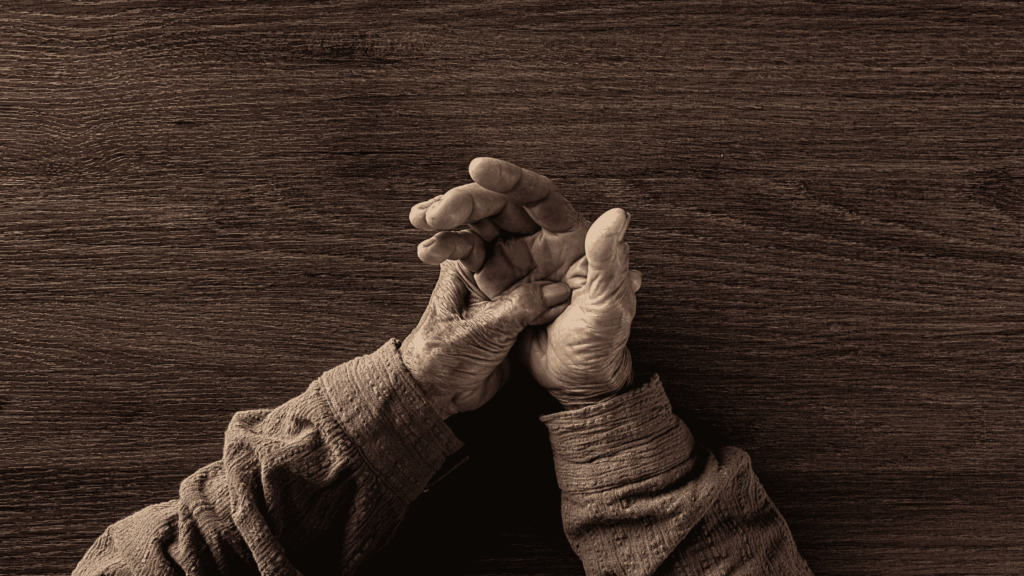

Hospice care offers significant benefits for patients with advanced PD, providing expert symptom management, holistic support, and respect for patient autonomy. An early referral can enhance quality of life and support families during this sensitive phase. Collaboration between physicians and the hospice team optimizes care transitions and ensures informed decision-making for patients and families.
Please contact us to learn more about how we can support you and your patients who need the extra level of care that hospice provides.

By: Dr. Laura Mantine
Parkinson’s disease (PD) is caused by the loss of dopamine-producing nerve cells within the brain. The loss of dopamine causes symptoms like stiffness, slow movements, balance problems, and depression. There are certain specific motor symptoms that accompany Parkinson’s disease. A resting tremor happens when a body part, usually a hand or foot, shakes slightly when a person is not using it. Bradykinesia is when movements are extremely slow, and patients may have freezing episodes which are temporary, involuntary periods where a person is unable to move. A PD patient may also experience changes in speech, smaller handwriting due to difficulties performing repetitive motions, and a “masked” face due to a loss of facial expression. Patients are also at an increased risk of falls from a combination of poor balance and severe stiffness. A PD patient may develop difficulty swallowing which can lead to weight loss, malnutrition, dehydration, and pneumonia.
There are also non-motor symptoms that are present in Parkinson’s disease. Parkinson’s dementia is a significant, permanent decline in attention, memory, and problem-solving that impairs daily life. A patient may develop hallucinations or delusions throughout their disease course which can lead to increased caregiver stress. Patients may also suffer from severe constipation, urinary problems, and sleep disorders that affect their quality of life.
As a progressive disease, Parkinson’s disease symptoms will slowly worsen over time. While PD affects people in unique ways, there are typical patterns of progression, defined by five stages. In stage 1 and stage 2 of Parkinson’s, patients may experience mild shaking and stiffness. As the disease advances into stages 3 and 4, loss of balance and slowness of movement begin to impair daily functioning. Stage 5 is the final, most debilitating stage of PD. In this stage, patients are wheelchair- or bedbound and require 24-hour nursing care. Patients are said to have end-stage Parkinson’s disease at stages 4 and 5 of the disease. In end-stage Parkinson’s disease, symptoms are so severe that medication stops working well, and patients require full-time caregiver assistance. Eventually, end-stage PD patients become candidates for hospice care, a service that focuses on easing symptoms and improving comfort at the end of life.
There are no formal PD eligibility guidelines for determining when a hospice referral should be made, and there is no definite timeline when it comes to the final stages of Parkinson’s disease. However, hospice care is available to patients who are expected to live six months or less. Doctors and hospice agencies will consider factors relevant to PD like a patient’s history of falls, hospitalizations, withdrawal from activities, inability to perform self-care, and lack of benefit from medication. There are very general hospice guidelines intended to cover a broad-spectrum of neurological disorders. The guidelines for neurological illnesses state that patients must meet one of the following to be eligible for hospice: critically impaired breathing or rapid disease progression in the past year.
Critically impaired breathing is unlikely to be applicable in Parkinson’s disease. Primary respiratory problems are not typical in advanced PD. The second criterion, evidence of rapid disease progression in the prior year, tends to be more useful for patients with end-stage PD. A rapid disease progression means that patients are bedridden, have unintelligible speech, require a modified diet, and need major assistance with activities of daily living. Nutritional impairment is common in end-stage PD. Patients are unable to maintain sufficient oral intake and experience weight loss and dehydration. Life-threatening complications that may occur in end-stage PD include recurrent aspiration pneumonia and pressure ulcers of the skin.
Hospice care is an extra layer of support to help care for loved ones with end-stage Parkinson’s disease. The goal of hospice care is to optimize comfort and ease physical, emotional, and mental suffering during the dying process. Members of a hospice care team include a doctor, nurse, social worker, and home health aide. Most patients with PD die from the same diseases such as heart disease, stroke, and cancer, that others do. As such, hospice care may be considered even before a patient with PD reaches the end stages of their disease. Deciding when it is time to enter hospice care can be a difficult decision for a person and their loved ones. However, being admitted to hospice can ensure a person and their caregivers have access to a variety of services that are needed.
References:
“Eligibility for End-Stage Parkinson’s Disease Hospice Care.” By Colleen Doherty, MD. Published on October 24, 2021. Medically reviewed by Isaac O. Opole, MD, PhD. https://www.verywellhealth.com.
“The Role of Hospice in Parkinson’s.” Parkinson’s Foundation. 2018. https://www.parkinson.org.